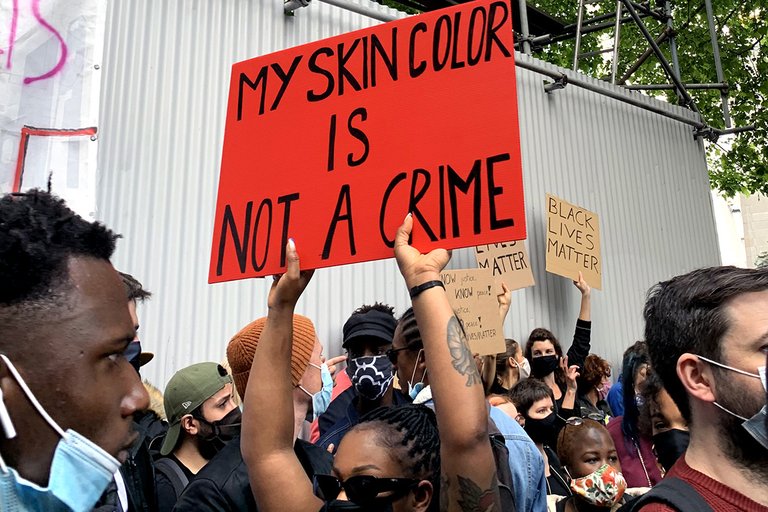They call for racism, xenophobia and exclusion to be declared a health hazard.

Racism, xenophobia and exclusion have denounced in a number of articles in the Lancet magazine that harm the health of groups that were previously undervalued. According to the authors, the impact of these factors on health has been ignored, but the consequences are very evident and, although there are spatial differences, situations of ethnicity, sex, age, class, migration, religion or marginalization occur in all parts of the world according to skin color. They often overlap.
To better understand the effect of racism and xenophobia on health, among others, they have analysed how they occur and concluded that there are two concepts: separation and hierarchy. It differs when one looks different from the other. And the hierarchy when you look above the others. Well, in that hierarchy, you've seen that the physical and mental health of the underneath is worse than that of the underneath.
COVID-19 has left clear examples. For example, in the United Kingdom, the rate of Ten has been very different according to ethnicity: Those of Bangladeshi origin had between 4 and 5 times more risk of dying from COVID-19 than those of British and white origin.
Researchers warn that the belief that these health differences have a genetic basis from which studies, policies and practices are conducted remains entrenched. This belief, in many cases mistaken, is that the human species is one of the least genetically deferred.
On the other hand, individual health care involves forgetting factors that influence groups, such as the availability of green environments, air quality and exposure to pollutants, the availability of fresh food… And health systems themselves have structural discrimination factors and have complex interactions between them. In addition to the obvious (class, ethnicity, sex…), they have identified many others that go unnoticed: language or language, educational level, communication capacity, ability to cope with bureaucracy…
With emergency meteorism, moreover, differences are increasing and the model is repeating, with more serious consequences for the least pollutants and vice versa.
Researchers have proposed six keys to face the situation: decolonization; the understanding of the intersections between the different axes of discrimination; increased diversity and inclusion. a restorative and transformative justice; the fight against racism; and a human rights-based approach.
Buletina
Bidali zure helbide elektronikoa eta jaso asteroko buletina zure sarrera-ontzian











